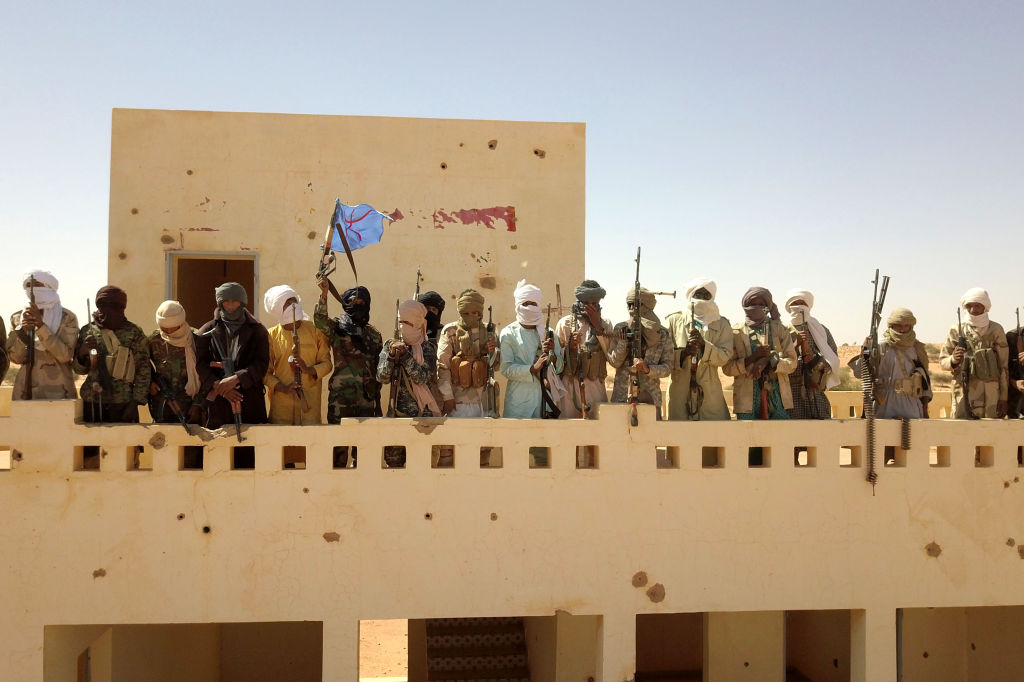ADF STAFF
Terrorism in Sub-Saharan Africa is intensifying, and experts say the central Sahel region has replaced the Middle East as its global epicenter.
Worldwide deaths from terrorism increased by 22% in 2023 to 8,352 — the most since 2017 — according to the 2024 Global Terrorism Index (GTI), published on February 29.
“Sub-Saharan Africa alone accounted for just under 59% of all fatalities,” the GTI report stated. “The Sahel accounts for almost half of all deaths from terrorism globally.”
Although terrorism in Sub-Saharan Africa got substantially worse in 2023, some experts noted that violent extremist organizations are becoming more fragmented and are showing resilience through self-sufficiency.
Terrorist groups more often steer existing conflicts and attach themselves to local grievances than exhibit any cohesive agenda, according to the International Institute for Strategic Studies (IISS) 2023 Armed Conflict Survey.
“Jihadist groups in the region have been evolving, becoming much more localized and intertwined with community and ethnic conflicts,” the survey editor, Irene Mia, wrote on the institute’s website when the survey published in December. “Their international ties to the Islamic State (IS) and al-Qaida have weakened, and connections between insurgent groups now appear to be limited to intra-regional collaborations.”
Mia said there are many armed groups competing for control in Sub-Saharan Africa, but “centralized insurgent movements have been largely disappearing or losing importance.”
The Sahel exemplifies the fragmented nature of extremist insurrections. The main terrorist group in the central Sahel subregion, Jama’at Nusrat al-Islam wal-Muslimin (JNIM), is an association of five major organizations and smaller factions. JNIM’s leader pledged allegiance to al-Qaida in 2017. The group’s name means “Group for the Support of Islam and Muslims.”
One of JNIM’s factions, Macina Liberation Front (FLM), is considered the most active in central Mali and is responsible for incursions into neighboring Burkina Faso. But the insurgency in Burkina Faso primarily is in the hands of Ansaroul Islam, a group known to be close with FLM.
The Islamic State Sahel Province also became more active throughout the subregion and is warring with JNIM over territory and resources.
Individual groups have shown to have different objectives and strategies.
“Claims of allegiance to al-Qaida or IS hide the fact that insurgent groups in Sub-Saharan Africa are essentially local insurgencies, which receive little or no external support,” the Armed Conflict Survey said.
“There is very little evidence that al-Qaida or IS has any capacity to provide meaningful support to these self-proclaimed franchises. These jihadist groups are, instead, largely self-financed.”
As of June 2023, there were 459 active armed groups worldwide with nearly 200 million people living under their control, according to the International Committee of the Red Cross. A total of 295 groups operated in Sub-Saharan Africa, North Africa and the Middle East.
Most of these groups have more power than the states in which they are located, as they provide security, health care, education and social support.
With so many insurgent groups operating, the Sahel has become a cauldron of violence and civilian misery.
“On the continent there are virtually no centralized insurgencies with a cohesive agenda,” Benjamin Petrini, IISS research fellow for conflict, security and development, said during the survey launch event. “There are lots and lots of nonstate armed groups fighting one another or the state, or cooperating and pursuing distinct economic interests.
“But largely, they are not interested in holding formal power.”

